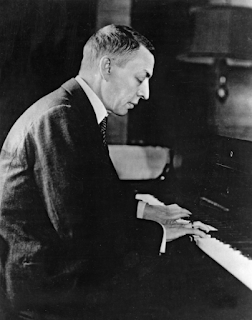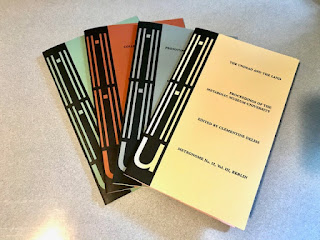CRAIG (as JOHN MALKOVICH): You see Maxine -- it isn't just playing with dolls.
MAXINE: Oh my Darling, it's so much more -- it's playing with people!
Craig is a depressed puppeteer who, at his wife's urging, goes looking for a straight job and finds one as a file clerk at a dimly-lit Manhattan doctor's office. There, he falls for Maxine who, in the uptown style, wants nothing to do with him, to the point of insult. When Craig discovers a portal behind an office filing cabinet -- a portal that leads to actor John Malkovich's brain -- he shares it with Maxine and they form a tour business: $200 to be someone else (for fifteen minutes). But it has to be John Malkovich.
I could go on all day describing this film, a film that many of you have seen or are already familiar with, but suffice it to say, Craig's wife Lotte, a pet store operator, gets involved and, after her experience inside John, declares she wants to transition to a man, because that's what inhabiting the body of another has done for her, and because Maxine, whom she has fallen in love with (after being inside John while he was "inside" Maxine), will only be with Lotte if Lotte is inside John. Somehow, at film's end, Craig is inside the child (now seven years old) that Maxine had with John (while Craig the puppeteer was inside John, controlling him for eight months), with the parents of that child being Maxine and Lotte.
Yesterday I reported a feeling of inhabitation ("possession") brought on by what my mother determined was the result of eating spoiled cabbage. Of course I thought about this during those scenes when Craig had taken over John's life -- and especially when, after the eight months he was inside John, Craig leaves John's body and John finds himself in a seedy bar staring at his combed-over head in the reflection of a beer mirror. Happy to be back, regardless of the context.
Being John Malkovich is a cusp film that trades equally in the emergent (and earnest) quirk of its day and a waning ironic detachment that some associate with 1980s and 90s postmodernism. Is "quirk" still with us, or has it cusped with something emergent? We know ethics (over aesthetics) is emergent, and identitarians would likely take issue with the supreme whiteness of this film, not to mention with the horror Craig expresses to Lotte when she tells him she would like to transition (to male). As for the sociopathic tendencies of Maxine and John, maybe I'm alone with that, for a lot of the sociopathic behaviour I am seeing today is going undetected, especially amongst those whose empathy, they believe, goes without saying.





































